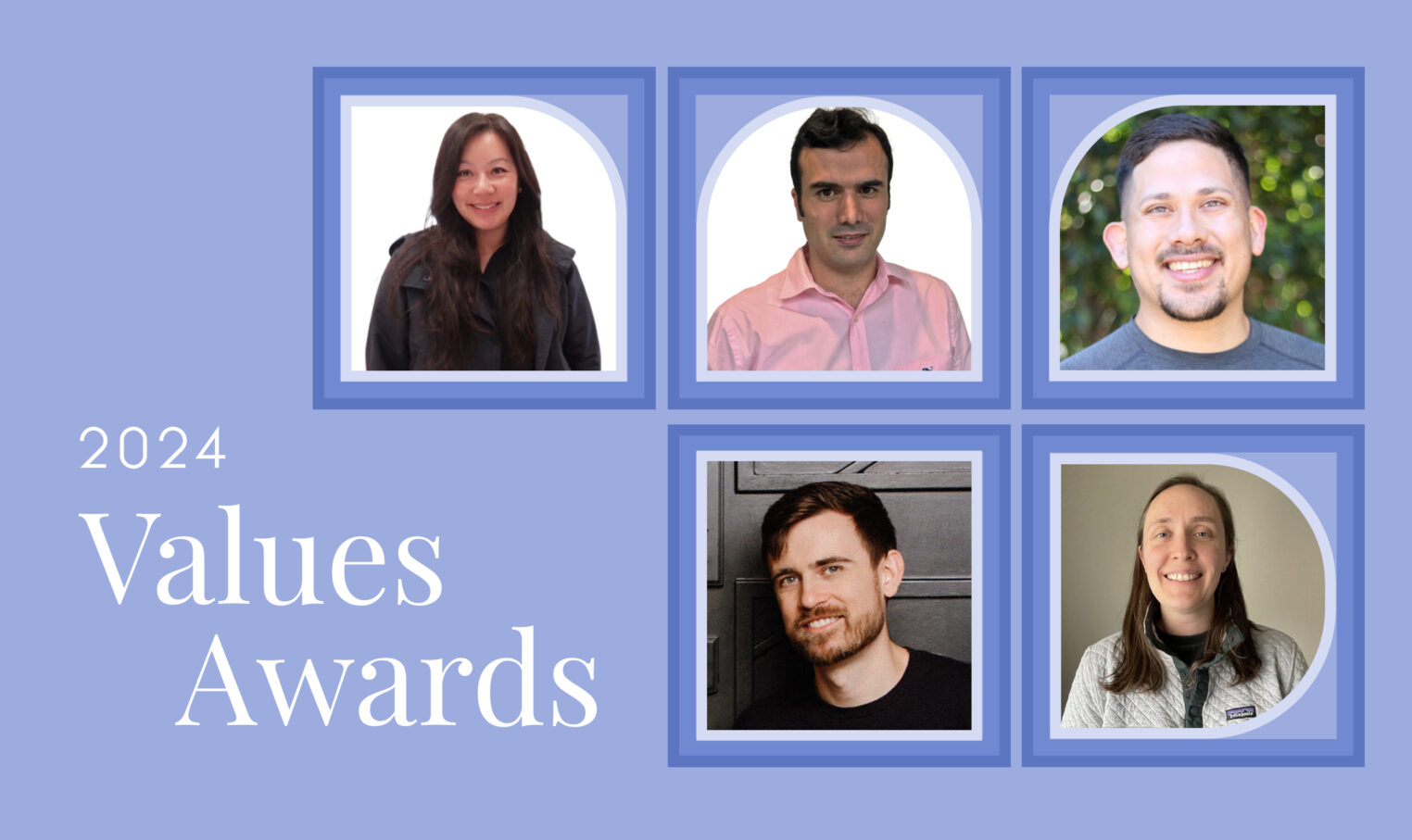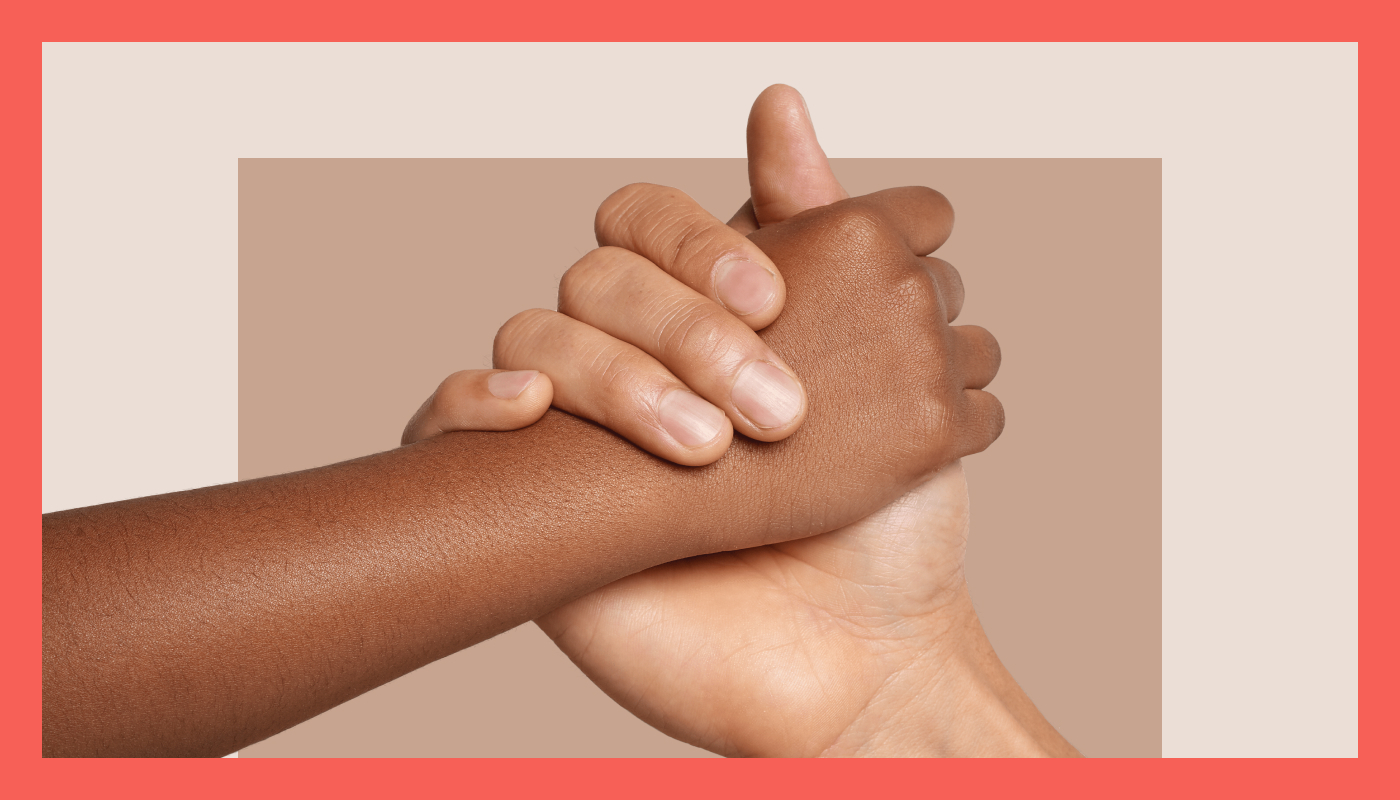Collective Careers is our series spotlighting the career journeys of colleagues at Collective Health. Today, we’re sitting down with Kimiko Mitchell, Senior Product Manager.
Where are you based?
I live and work in Salt Lake City. I moved to Utah for the opening of our Lehi office in 2019. If you would’ve asked me then, I would’ve said that I’d probably be here for 12 months, and now it’s been almost four years!
Why’d you move to Utah?
I lived in San Francisco for three years before that, and I wanted to live somewhere slow-paced, where work wasn’t the first question that people asked when they met you. At the time, I didn’t know anything about Utah – honestly, I doubt I could’ve picked it out on a map. When the opportunity came up, I was like, why not? Moving to a completely new place was a huge change, but I feel really lucky that it worked out for me, and I’m glad I took that leap.
What brought you to Collective Health in the first place?
I came to Collective Health right out of college. I was planning to go to physical therapy school after graduation, but was so burnt out by the idea of pursuing even more school. I figured I should take advantage of the fact that I was in the Bay Area with a background in healthcare, so I applied to a handful of health tech companies and stumbled across Collective Health. I started as a Member Advocate and I was intrigued with the idea of doing more than just “customer service.” But let’s be real, I was a recent college grad, so truthfully, I thought it would be a one or two year thing before returning to the physical therapy plan.
Where did you go from there?
I had a spectacular manager at that time who basically pulled me aside and said, “I don’t care what you think, you need to be a people manager. I want you to be challenged and help us solve hard problems.” I moved into a people manager position, but given the age of the company, I also had the opportunity to build a ton of things from the ground up. I built our first schedule, our first knowledge base, our revamped training program and curriculum, and I rose my hand to open up our new office in Lehi. It was unbelievably cool to stretch and learn all these different things, and I don’t think I would’ve been able to do all of them if I didn’t join Collective Health at the time that I did.
How did you like being a people manager?
I really loved it. I’ve had fantastic managers, and I’ve also had managers that made my job harder. And I was motivated by both–I wanted to be like those inspiring managers and I wanted to be better than the others. I really tried my best to be there for my people. I wanted them to feel like they could be their authentic selves with me, and I was authentic right back. I felt like that was the best way to be their cheerleader and coach, and figure out what drove them.
I really tried my best to be there for my people. I wanted them to feel like they could be their authentic selves with me, and I was authentic right back.
– Kimiko Mitchell
How did you get to where you are now?
Given all of my time in the Member Advocacy space, I spent some time starting up a brand new team: Client Issue Resolution. I really sharpened my process building, customer communication, critical thinking, and problem solving with starting a new business function from scratch.
After about a year, I started to feel like I had run out of challenges that I wanted to tackle in the Customer Experience organization. I began thinking about what it would take for me to advance to an executive level, or even run my own company one day. I realized that, if I wanted to do any of this in tech, my biggest gap was the technology. Up until this point, I had worked with so many teams, except Engineering. I wanted to understand how they talk, how they think, how they plan. I wasn’t keen about becoming an engineer myself, so I thought, how best to get close to them? Product management felt like my best opportunity.
In my head, I knew that all my experiences and skills set me up well for Product, but it still felt like a scary jump. I thought I was overestimating myself, and needed to follow a more “formal” track to get into Product. Luckily, I had supportive mentors at the time that told me, “Why hold yourself back? Apply for the job you want. Don’t get in your own way.” So I did it and now I’ve been in Product for three years.
How did you learn the technology piece and close the gap in your knowledge?
A lot of trial and error. And getting over feeling stupid. At first, learning something new felt discouraging – why didn’t I just “get it”? But then I realized, how else am I supposed to get to that place of understanding? Ask the stupid question. Who cares? At Collective Health, people often offer: “Set up some time with me to chat through what you’re working on,” or “Feel free to ask me any questions,” and I did. In no way do I feel like a professional technologist, but I’m proud of my curiosity and perseverance to understand something that once intimidated me.
What are the biggest lessons you learned throughout your career journey?
The first one is to get out of your own way of being excellent at your job. You’re smarter, kinder, and more capable than you might think. Find the people, team, and work that brings that out in you and that challenges you when you slip up, then keep running forward.
And the other really big lesson is, if you’re feeling blocked by something, like mismatched communication styles, for example, the best way out is through. I used to think that waiting it out or working around that point of tension was the best way forward–it’s not. You might have to try to have that hard conversation or be really transparent about whatever isn’t working. That was a really tough lesson for me to learn, because I didn’t like the idea of being seen as confrontational, but there’s a right amount of confrontation that can work out in your favor.
What did you want to be when you were younger? How has that informed what you do today?
My mom was a teacher at my school, so I wanted to be a teacher. I saw the lasting impact and influence that teachers had on their students, and I still think about that today. I care about the people I work with and I’m cognizant of the culture and community I create immediately around me at work. While it may not have influenced the job I took, the idea of having a lasting impact has definitely influenced how I approach my work.
What’s next?
Eventually I want my career to be more focused on community-building–though I’m not entirely sure what that means yet. In the meantime, I’m sure I’ll stay in tech in some capacity. And while I’ve loved working in healthcare and at Collective Health, one day, I’d love the opportunity to work in a less regulated industry so that I can be more creative and bold in my decision-making.



